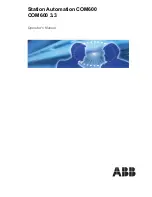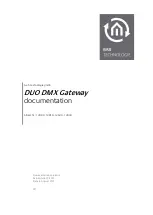
Chapter 3: Additional Information
Illustrations contained in this document are for representation only.
37
Glossary
10BaseT
– Unshielded, twisted pair cable with an RJ-45 connector, used with Ethernet LAN
(Local Area Network). “10” indicates speed (10 Mbps), “Base” refers to baseband technology, and
“
T” means twisted pair cable.
Authentication -
The process of verifying the identity of an entity on a network.
DHCP(Dynamic Host Control Protocol)
– A protocol which allows a server to dynamically
assign IP addresses to workstations on the fly.
Ethernet card
– A plug-in circuit board installed in an expansion slot of a personal computer.
The Ethernet card (sometimes called a Network Interface Card or NIC) takes parallel data from
the computer, converts it to serial data, puts it into a packet format, and sends it over the
10BaseT or 100BaseT LAN cable.
DOCSIS (Data Over Cable Service Interface Specifications)
– A project with the objective of
developing a set of necessary specifications and operations support interface specifications for
Cable Modems and associated equipment.
F Connector
– A type of coaxial connector, labeled CABLE IN on the rear of the EMTA, that
connects the modem to the cable system.
HTTP (HyperText Transfer Protocol)
– Invisible to the user, HTTP is used by servers and clients
to communicate and display information on a client browser.
Hub
– A device used to connect multiple computers to the EMTA.
IP Address
– A unique, 32-bit address assigned to every device in a network. An IP (Internet
Protocol) address has two parts: a network address and a host address. This modem receives a
new IP address from your cable operator via DHCP each time it goes through Initialization Mode.
Key exchange
- The swapping of mathematical values between entities on a network in order to
allow encrypted communication between them.
MAC Address
– The permanent “identity” for a device programmed into the Media Access
Control layer in the network architecture during the modem’s manufacture.
Network Driver
– A file that is loaded on the computer to allow the computer to recognize the
Ethernet card or USB port.
NID
- Network Interface Device, the interconnection between the internal house telephone
wiring and a conventional telephone service provider’s equipment. These wiring connections


































